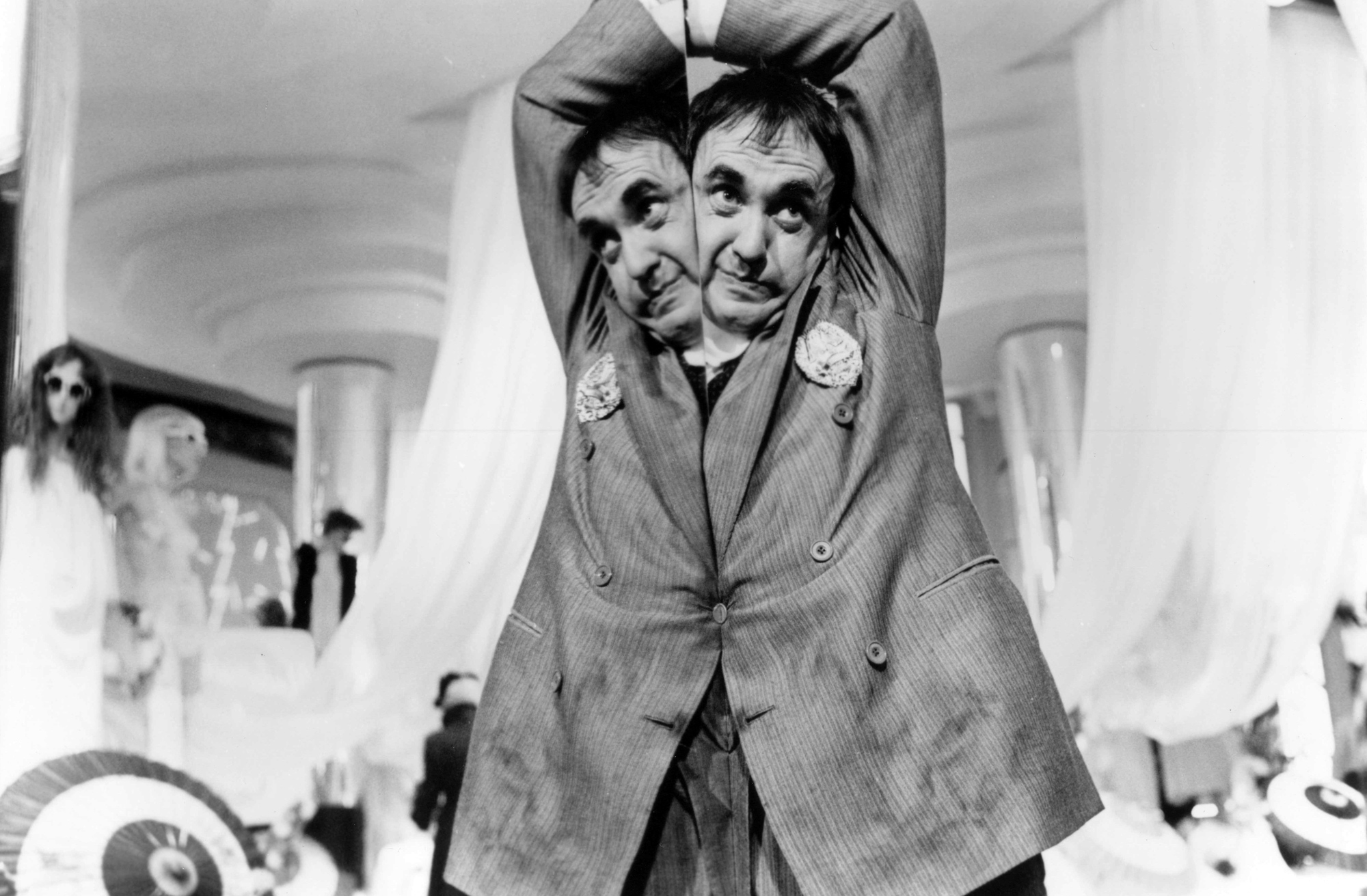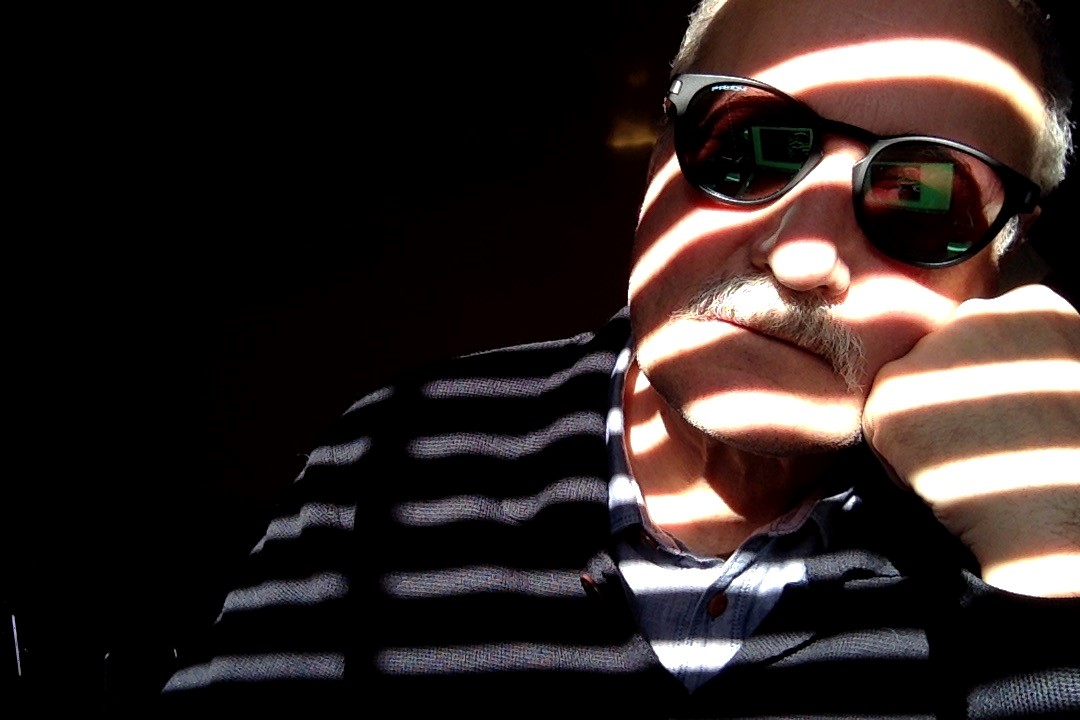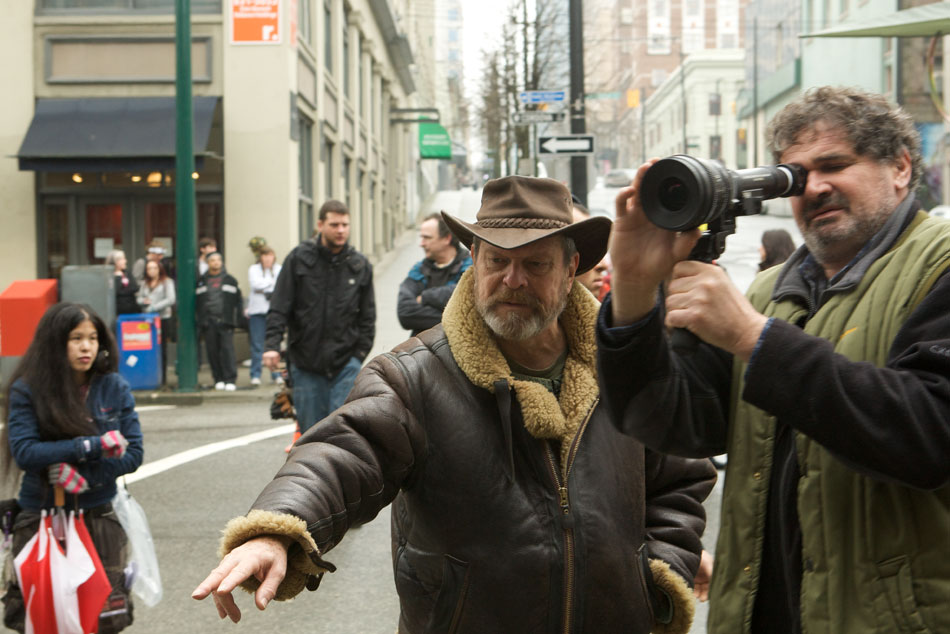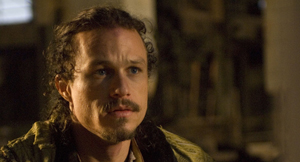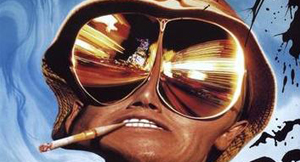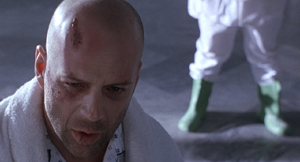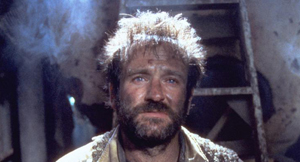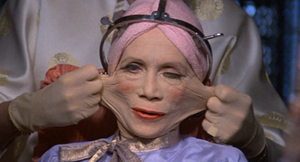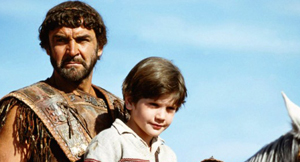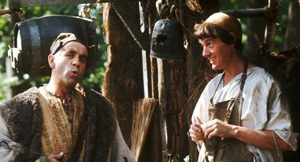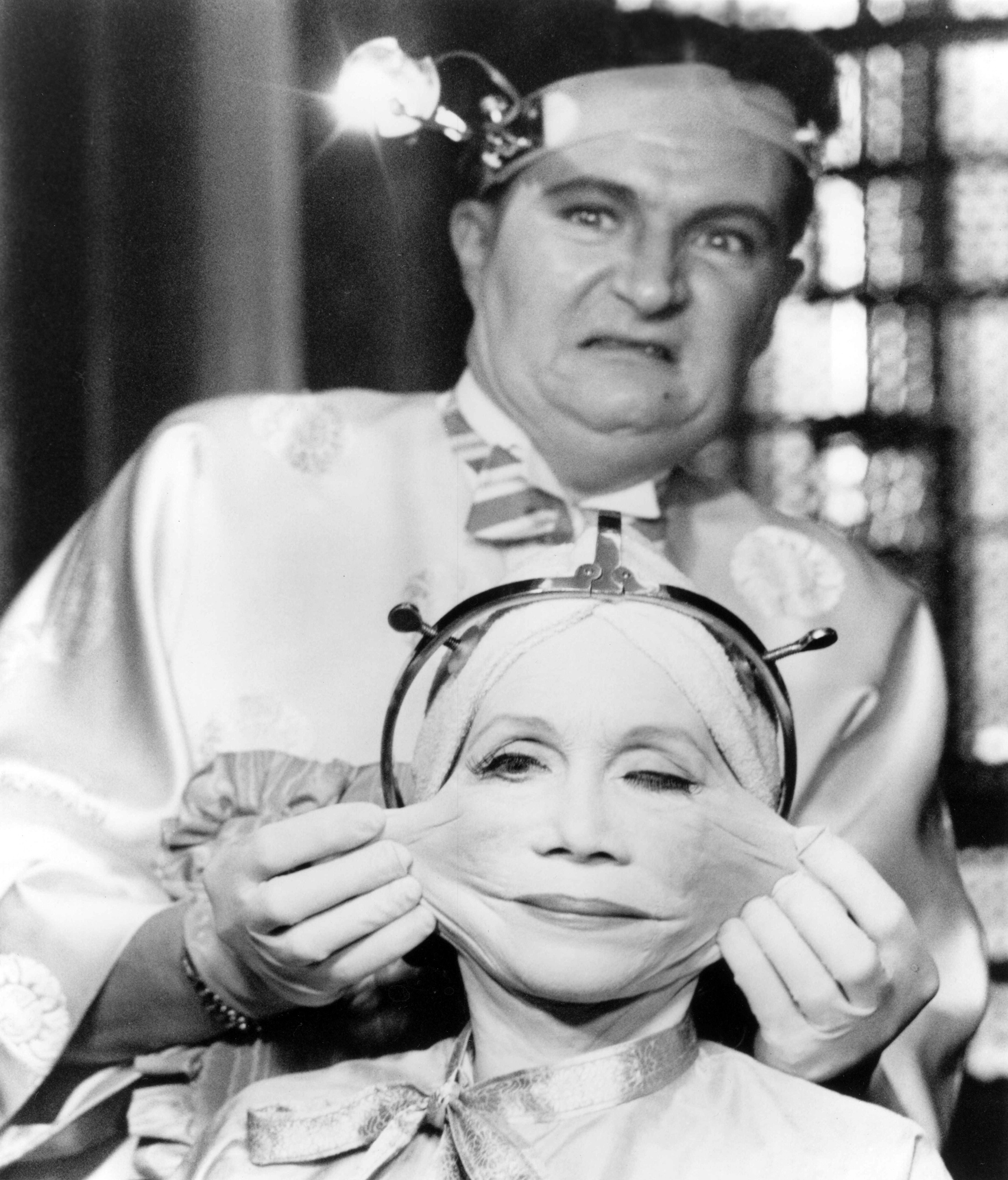
BRAZIL Frequently Asked Questions
Copyright 1994-1998 David S. Cowen
Release 1.4, Last-modified: 1998/7/17
0. INTRODUCTION
Over a decade after the release of BRAZIL, Terry Gilliam’s film remains one of the most valued movies by individuals on the Internet. As the complex plot and unique style of BRAZIL have endeared fans, the legendary battle about BRAZIL’s release between Gilliam and Sid Sheinberg (then president of Universal pictures, the studio responsible for releasing Brazil in the US) has become an essential part of film history. As is rarely the case, an underdog director successfully battled a studio to get his film released as he intended it… resulting in a great degree of confusion over the different available versions of BRAZIL. This FAQ has been created to answer frequently asked questions pertaining to all matters regarding the film.
This FAQ contains spoilers. Watch the film before reading this FAQ.
TABLE OF CONTENTS
1. I didn’t understand the film at all. What’s it all about? [On this page, see below]
2. Why were problems with BRAZIL’s release in America? [On this page, see below]
3. How many versions of BRAZIL have been released? What are the differences between them? [Click here for Section B]
4. How do I get the version I want to see (on laserdisc or DVD)? [Click here for Section B]
5. What is the title BRAZIL supposed to mean? [Click here for Section B]
6. How does BRAZIL fit in with Gilliam’s other movies? [Click here for Section B]
7. What are the lyrics to the song _Brazil_? Is a soundtrack available? [Click here for Section C]
8. The sets are stunning. Where were they filmed? [Click here for Section C]
9. What do all the signs say? [Click here for Section C]
10. What is Information Retrieval Charging? [Click here for Section C]
11. What does the singing telegram girl sing? [Click here for Section D]
12. Miscellaneous questions, answers and observations. [Click here for Section D]
13. Where can I get more information about BRAZIL? [Click here for Section D]
14. Notable Quotes. [Click here for Section D]
1. I didn’t understand the film at all. What’s it all about?
BRAZIL is a film rich in depth — the plot does not focus on just one subject, but instead contains many different themes which weave together. The film follows the character of Sam Lowry, a clerk in the records department of a huge government bureaucracy — the Ministry of Information. Sam’s perception of the world alternates between being trapped as a mere “cog in the machine” in a grim world of paperwork and escaping from his grim existence by becoming a hero in his own elaborate dreams. His life and these dreams begin to merge together, with his dreams becoming more realized as his life tears apart. Eventually, the government imprisons him, finding him guilty of none other than “wasting the Ministry’s time and paper” after Sam embarks on a messy pursuit of the girl he sees in both his dreams and in real life — who was unrightly wanted by the Ministry as a suspected terrorist.
Still don’t get it? You probably won’t, not until you’ve seen the film multiple times. The structure of BRAZIL often uses peripheral devices: interviews heard in the background, lines of conversation running over action and posters seen on walls, to give the viewer cues as to what’s going on in the film. It seems nearly impossible that a single viewing of BRAZIL could possibly supply the viewer with all of the information needed to fully digest what’s happening in the film.
BRAZIL is a film which rolls up many of the problems of the century into one big plot: industrialization, terrorism, government control and bureaucracy (from both capitalist and socialized countries), technology gone wrong, inept repair people, plastic surgery, love, and even modern filmmaking. Especially love.
Gilliam has claimed that the film is about the fear of love: the consequences of the Sam Lowry character pursuing his dream girl are steep. However, if the film can be said to focus on a single topic, it would have to be described as the dehumanizing effect of technology and bureaucracy on today’s society — although the film is much more than that. In the world of BRAZIL, set “8:49 p.m., somewhere in the 20th century”, fantasy is the only escape, and the happy ending is that of a man going insane. The film certainly isn’t everyone’s cup of tea, shifting abruptly from comedy to despair, something Gilliam has described in interviews as “cinematic rape.” Gilliam approaches the style of the film with his trademark wit and stunning visuals, both honed during his years as the animator for _Monty Python’s Flying Circus_ and during the production of his film _Time Bandits_.
Words from Gilliam himself, part of an interview for The South Bank Show, filmed 6/29/91:
“BRAZIL was a film that sat around for some years, I mean like 10 years I’d been sort of thinking about this thing. I mean on a very simple level it’s just its just very cathartic for me. It’s all about my own frustrations and my seeming inability to achieve what I wanted to achieve and my inability to affect a system that is clearly wrong. The fears of BRAZIL are not so much that the world is spinning out of control because of the system, because the system is us. What BRAZIL is really about is that the system isn’t great leaders, great machinating people controlling it all. It’s each person performing their job as one little cog in this thing and Sam chooses to stay a little cog and ultimately he pays the price for that.
“Now on the other hand I also felt that there’s the ideal that if we all do our bit the world will become better. Then there’s the pessimistic side that says enough of this ‘do our bit, ain’t gonna make a blind bit of difference as we’re all gunna, lemming like, go over the abyss’. And so then there was ‘how do you escape from that world?’ and Sam escapes by going insane. I actually started this film with that idea of ‘can one make a film where the happy ending is a man going insane?'”
Keep in mind, however, that Gilliam has been quoted as saying: “Because I dislike being quoted I lie almost constantly when talking about my work.”
2. Why were there problems with BRAZIL’s release in America?
In January of 1985, Terry Gilliam delivered his completed film BRAZIL to Universal Studios, on time and on budget. BRAZIL’s complex and interweaving plot demands a lot of screen time in order to tie up all the loose ends — and Gilliam was happy about the way the film worked in its 142 minute cut. Fox Pictures International had just signed the international agreement to the film and had accepted the 142 minute length without any sort of protest, so Gilliam expected Universal to accept it for distribution in America.
Not so. Sidney Sheinberg, the president of Universal studios had taken an interest in BRAZIL — Sheinberg “liked many parts of BRAZIL, and thought there were many moments of bravura filmmaking,” but what Sheinberg saw lacking was commercial potential. The cure for this in Sheinberg’s eyes was a re-edit, one that took the various parts of BRAZIL that were commercially viable (Sam’s pursuit of his dream girl, the stunning set design and Gilliam’s off-beat style of humor), while removing those things that were not (the film’s dark ending, the overtones of the dehumanizing effects of the government, Michael Kamen’s witty but dark orchestral score).
This began a personal battle between Terry Gilliam and Sidney Sheinberg for control of the film. Sheinberg had forced Gilliam to sign a time provision which said that the running time of BRAZIL would have to be 132 minutes for Universal to accept it, and that even then Universal could follow up with any editing it deemed necessary. A rough cut of BRAZIL which ran at 132 minutes was created by Gilliam’s editor Julian Doyle in order to fulfill the contractual obligation on time, and was sent to Universal pictures. Gilliam worked on a 132 minute edit, while Sheinberg himself began work on the studio’s edit of the film.
Sheinberg’s editors Bill Gordean and Steve Lovejoy created an edit which cut out many of the dream sequences and essential threads in the plot of BRAZIL, while splicing in all elements of humor and all usable footage involving Sam Lowry and Jill Layton, the “dream girl”. If that wasn’t bad enough, Gordean and Lovejoy also lopped off the entire ending sequence which involved Sam Lowry’s interrogation (and eventual loss of sanity) by his coworker Jack Lint. Instead, they chose to end the film where Sam finally consummates his relationship with Jill, and escapes with her to the country. Also suggested was the replacement of Kamen’s symphonic score with one of rock music — in order to “attract teens.”
Ultimately, this edit subverted the entire point of BRAZIL, making the movie a futuristic fairy tale about a man’s quest for a dream woman, with a lot of action and a sub-plot about terrorism thrown in. Gilliam’s original message of dehumanization and technology gone wrong was subverted by Sheinberg’s edit, which sent the message that if you play the game and stay a good little cog in the machine, that one day you’ll end up with your dreams come true.
Scheinberg, upon seeing Gilliam’s second 132 minute edit, decided to test the studio’s version instead. Gilliam would not stand for this. Arnon Milchan, the producer of the film, began making public declarations on how the studio had taken away Gilliam’s film because it was only a few minutes over contractual obligation, and began calling for critics to see the film in England, where it was available from Fox Pictures. Sid Sheinberg responded back by saying that no amount of critical praise could reverse the studio’s decision about BRAZIL. Gilliam told Sheinberg that if he was going to release to studio’s edit of BRAZIL that he wanted his name off of the credits, and then started an out and out publicity war. In Gilliam’s own words:
“It became a stalemate situation and Arnon Milchen, the producer said, “We’ve got to get lawyers in here and we’ve got to deal with this” and I said “Nah, can’t get lawyers in. They’ve got all the lawyers in the world. They’ve got all the money. They don’t have to release the film, it’s not going to kill them. They can sit on it”. and I said “we’ll just have to approach it in a much more personalized way”. So the first thing I did was to take a full page ad out in Variety which was this blank page except for this black border and in the middle of it it said:
Dear Sid Sheinberg,
when are you going to
release my film ‘BRAZIL’?
Terry Gilliam.
and eventually what happened was the LA critics became very interested in the film and some had seen it and they set up a whole series of clandestine screenings of this film around Hollywood in peoples homes. It came time to vote at the end of the year for their films and they realized in their bylaws it didn’t say that a film had to be released to be able to be voted upon and so they all voted upon whether BRAZIL could be voted upon and they agreed it could be and then it went out and it won Best Picture, Best Direction and Best Screenplay. [The awards were] announced the very night of the premiere of Out Of Africa in New York which was Universal’s big film that year. All the big brass were there in their ties & DJ’s and they were told that Out Of Africa had won nothing and BRAZIL, this film that they won’t release has won all these awards. They had to release it and what was wonderful was I was getting all these phone calls from people saying “Oh well done, maybe now the flood gates will open we’ll get films out, blahblahblah”. Of course it didn’t, just like BRAZIL, the system doesn’t change, you just escape in your madness, that’s all.”
– Terry Gilliam, The South Bank Show, 6/29/91
Universal finally opened Gilliam’s 132 minute cut of BRAZIL at two theaters in Los Angeles on Christmas Day, 1985, later slowly bringing it across the country in a limited number of theatres with limited advertising.
